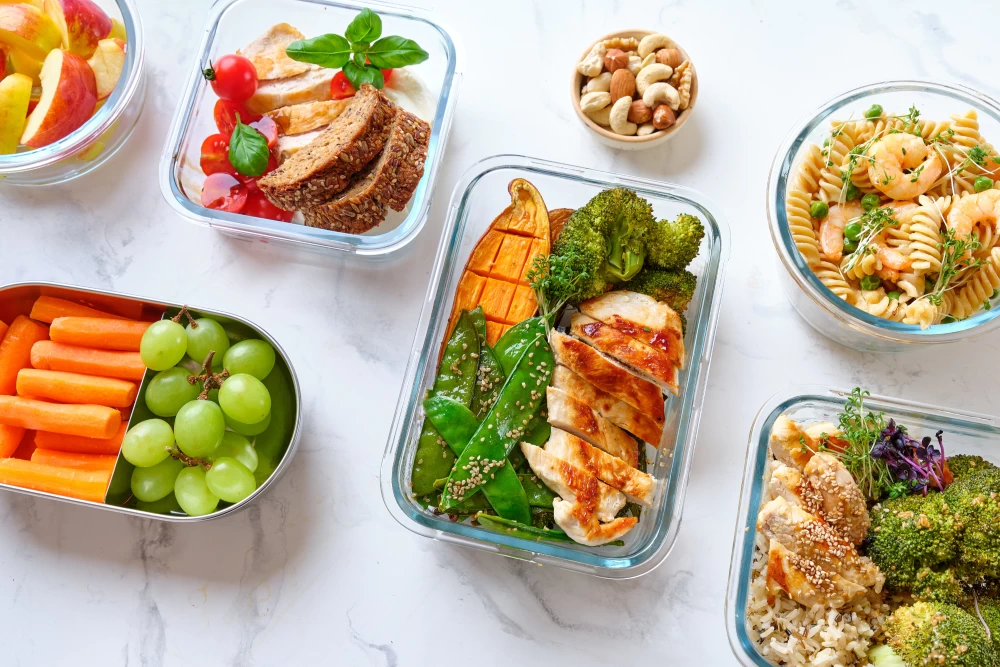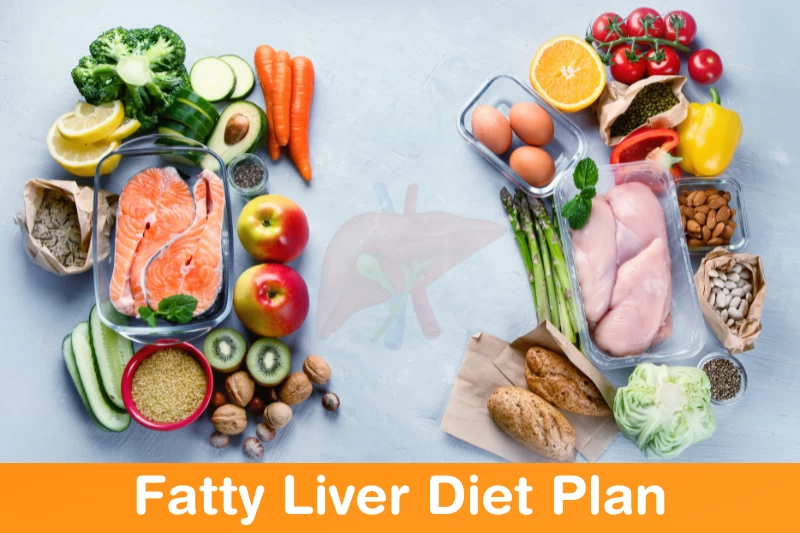
- 20th March 2023
Table of Contents
Fatty Liver Diet
1. One of the most important tips for a fatty liver diet is to limit or eliminate alcohol consumption. Alcohol can cause inflammation and damage to the liver, which exacerbates the condition. Additionally, reducing or eliminating processed foods and high-fat foods can also help support liver health.
2. Meal prep can be a helpful tool in sticking to a fatty liver diet plan. Preparing meals ahead of time ensures that you have healthy options readily available and reduces the temptation to reach for unhealthy snacks or takeout food. Choose recipes that are rich in fruits, vegetables, lean proteins, and whole grains.
3. Planning out your meals and snacks in advance can also help ensure that you are getting all of the necessary nutrients for optimal liver health. Consider incorporating foods like leafy greens, berries, nuts and seeds, lean meats such as chicken or fish into your meal plans. With some planning and preparation, it is possible to create delicious meals that support a healthy liver while still being satisfying and enjoyable to eat!
Dietary Guidelines: Foods to Avoid
When it comes to a fatty liver diet, there are certain foods that should be avoided. One of the main culprits is alcohol. Drinking alcohol is known to increase the risk of developing a fatty liver and can also worsen the condition if you already have one. High-calorie, sugary drinks like soda and fruit juices should also be avoided. Another food group that should be limited or avoided altogether is processed and fried foods. These types of foods are often high in unhealthy fats, sugar, and salt which can all contribute to an unhealthy liver. Red meat and full-fat dairy products like butter and cream should also be avoided as they contain saturated fat which can lead to inflammation in the liver. Lastly, it's important to limit your intake of refined carbohydrates like white bread, pasta, and rice as they can cause spikes in blood sugar levels leading to insulin resistance which has been linked with non-alcoholic fatty liver disease (NAFLD). By avoiding these harmful food groups and instead focusing on a balanced diet rich in fruits, vegetables, lean protein sources such as fish or chicken breast - you may help improve your overall health while supporting optimal liver function at the same time.
Dietary Guidelines: Foods to Include
When it comes to a fatty liver diet, there are several foods that you should include in your meal plan. First and foremost, vegetables are an essential part of any healthy diet. They provide vital vitamins and minerals while being low in calories and high in fiber. Leafy greens such as spinach, kale, and collards are particularly beneficial for those with a fatty liver. In addition to vegetables, fruits can also be included in a fatty liver diet. While fruits contain natural sugars, they also contain fiber which helps slow the absorption of sugar into the bloodstream. Fruits like berries, apples, and citrus fruits have anti-inflammatory properties that can help reduce inflammation associated with fatty liver disease. Lastly, incorporating lean proteins such as chicken breast or fish can be beneficial for those with a fatty liver. These proteins provide essential amino acids while being lower in fat than other protein sources such as red meat. Additionally, including plant-based proteins like beans or tofu can provide further health benefits while reducing overall calorie intake.

Meal Prep Tips
When it comes to managing fatty liver disease, maintaining a healthy diet is crucial. Meal prep can be a lifesaver for those who are busy and want to ensure they are consuming wholesome, nutrient-dense meals that support liver health. One helpful tip when prepping your meals is to start with a grocery list. This step will help you stay focused on purchasing foods that align with your health goals and prevent impulse buys of unhealthy snacks or desserts. Another important aspect of meal prep is portion control. Overeating can lead to weight gain, which can exacerbate fatty liver disease symptoms. Consider investing in portion control containers or measuring cups to ensure you're eating the appropriate amount of food for each meal. Lastly, don't forget about incorporating variety into your meals. Eating the same thing every day can become boring and potentially lead to falling off track from your dietary goals. Experiment with different recipes, spices, and seasonings to keep things interesting while still adhering to a healthy fatty liver diet plan. With these tips in mind, you'll be well on your way towards successful meal prepping for optimal liver health!
Recipe Ideas
When it comes to following a fatty liver diet, meal prep is key. One way to ensure you're sticking to your diet is by planning out your meals ahead of time. Recipe ideas that fit into a fatty liver diet include lean proteins like chicken, fish and turkey, as well as plenty of fresh fruits and vegetables. Try making grilled chicken with roasted Brussels sprouts for a simple yet delicious meal. Another option is baked salmon with steamed broccoli and brown rice on the side. For breakfast, try overnight oats with berries or scrambled eggs paired with spinach and whole wheat toast. Remember to avoid processed foods high in sugar and unhealthy fats when planning your meals. By incorporating these recipe ideas into your meal prep routine, you'll be on track towards better liver health in no time.
Lifestyle Changes for Improved Health
Lifestyle changes can play a significant role in improving overall health, and one of the most important steps towards this goal is to eat a healthy diet. For individuals with fatty liver disease, making some adjustments to their meal prep and dietary intake can help improve liver function, reduce inflammation and enhance weight loss. A good place to start is by incorporating more fruits, vegetables, whole grains and lean proteins into your meals while limiting processed foods high in saturated fats. Additionally, opting for healthy cooking methods such as baking or grilling instead of frying can also make a big difference in reducing unhealthy fat intake. Moreover, planning ahead is crucial when it comes to maintaining a healthy diet. Meal prepping on weekends or packing lunch for work can be an effective way to avoid unhealthy food choices when hunger strikes. By creating a weekly meal plan that incorporates nutritious ingredients that are easy to prepare ahead of time like roasted vegetables or boiled eggs, you'll be able to stick with your goals much easier. Making these small lifestyle modifications may seem challenging at first but staying motivated and committed will lead you towards improved health outcomes over time.
Conclusion
In conclusion, following a fatty liver diet and meal prep plan can greatly improve one's health. By reducing or eliminating processed foods, sugar, and alcohol while incorporating more fruits, vegetables, lean proteins, and whole grains, individuals can decrease their risk of developing fatty liver disease or reverse its effects. Meal prepping is also an effective way to stay on track with healthy eating habits by preparing meals in advance and having them readily available. It is important to note that making dietary changes can be challenging and may require support from healthcare professionals or registered dietitians. Additionally, maintaining a balanced lifestyle through regular exercise and stress management techniques can further improve overall health outcomes. With dedication and commitment to these healthy habits, individuals with fatty liver disease can see significant improvements in their condition and overall well-being.














